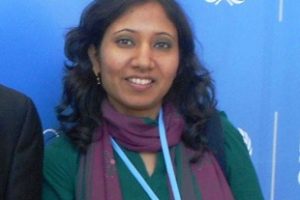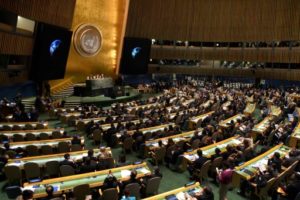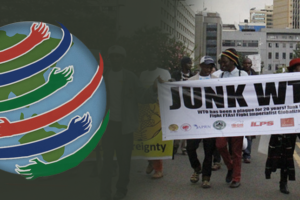As 1st HLM of GPEDC opens in Mexico
IBON International Updates
No. 2 – GEPDC
At Mexico summit: CSOs warn vs development ‘exclusively for global elites’
MEXICO CITY, 15 April 2014 – As over 1,500 development leaders gathered here for the first High Level Meeting of the Global Partnership for Effective Development Cooperation (GPEDC), a global civil society platform warned that development must not “remain exclusive for the global elites while ordinary people are denied a life of dignity and justice.”
Civil society organizations belonging to the CSO Partnership for Development Effectiveness (CPDE), the open platform that participates in the GPEDC process, noted that principles for forging and pursuing a common development agenda had been arrived at in past summits, but implementation has been hampered by “lack of political will.”
The two-day GEPDC summit aims to review global progress in making development co-operation more effective and agree on actions to further enhance development cooperation in the post-2015 global development framework.
Heads of state and government, ministers, parliamentarians and leaders from international organisations, business, civil society and foundations joined Enrique Peña Nieto, President of Mexico, UN Secretary-General Ban Ki-moon and OECD Secretary-General Angel Gurría at the opening of the summit.
The GPEDC was established in 1 December 2011 as an outcome of the Fourth High Level Forum on Aid Effectiveness at Busan, Republic of Korea. The Busan Partnership Agreement laid down four principles for achieving common development goals: ownership of development priorities by developing countries, a focus on results, inclusive development partnerships, and transparency and accountability. But Busan’s most significant innovation is in having brought together all stakeholders to forge a common agenda and commit to hold one another accountable for implementing this agenda even as it was purely voluntary in nature.
However, CSOs belonging to CPDE note the lack of political will to implement this agenda even two years after it was agreed. CPDE has been urging all stakeholders in the GEPDC-HLM to:
1) Promote equitable and just development cooperation architecture
2) Support CSOs as independent development actors and strengthen the enabling environment for civil society
3) Apply appropriate regulatory framework to ensure that the private sector respects human rights and contributes to sustainable development outcomes
4) Tackle tax avoidance and evasion, increase transparency and accountability
5) Reform the governance of the GPEDC to reflect the inclusiveness principles of Busan
6) Advance a renewed global partnership for sustainable development in the post-2015 period based on the principle of international solidarity.
In his remarks during the Opening Session of the HLM, Antonio Tujan of IBON International and Co-chair of the CPDE, called on all partners to renew commitment for the Busan Agenda, particularly the commitments made in terms of increasing democratic ownership and providing an enabling environment for CSOs.
Speaking at the First Panel on Inclusive Development Partnerships, Roselynn Musa of FEMNET decried the shrinking space for civil society as new legislation, regulations and practices of governments in many countries are restricting the operations of CSOs, curtailing their independence and freedom, and suppressing and even killing political activists and human rights defenders.
Vitalice Meja of Reality of Aid-Africa likewise lamented that in many countries CSOs do not have access to vital information on development programs and activities which are necessary to hold governments and other power holders to account.
Tetet Lauron of the Asia-Pacific Research Network remarked that “instead of upholding genuine multi-stakeholder involvement in setting the development agenda, there is a clear regressive trend towards privileging the corporate sector in development and development cooperation.”
Erin Palomares of Reality of Aid-Asia Pacific explained that official development assistance (ODA) is now being “blended” with private finance as a way of reducing risks for private investors in infrastructure and other development projects. “Aid” is also being used to “encourage” policies that create an enabling environment for business, particularly for transnational corporations.
Tujan warned that “if the aid system is used to promote the interests of investors over the human rights of the people, gender equality and environmental sustainability, then development will remain exclusive for the global elites while ordinary people are denied a life of dignity and justice.” ###



